Why Cats Dig in Their Food
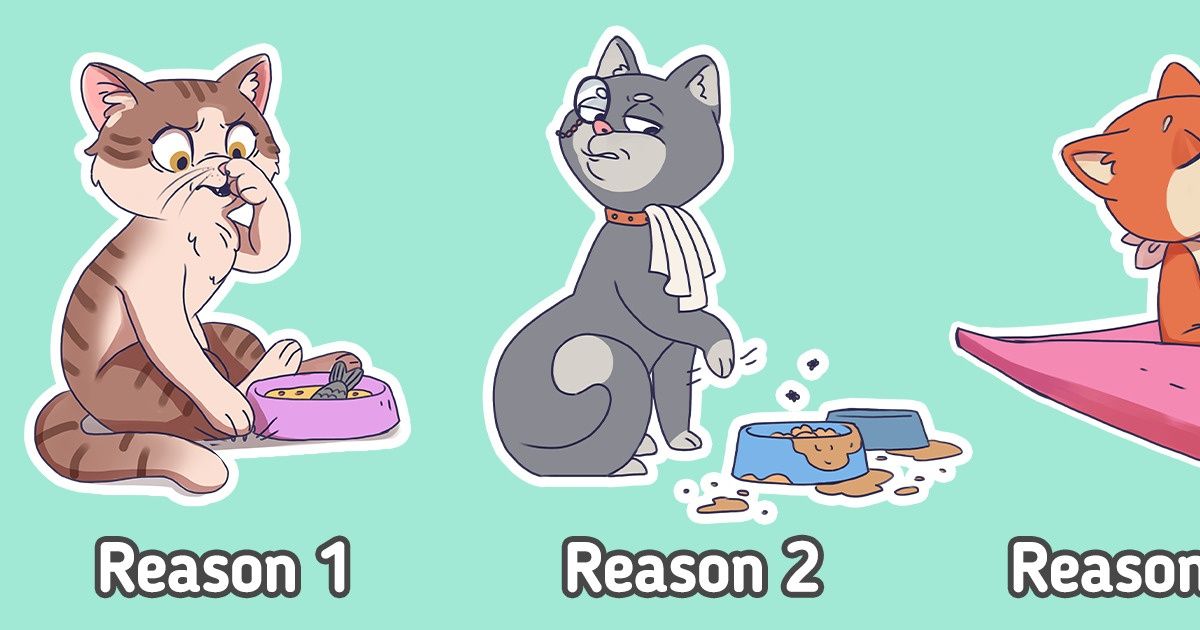
If your cat scratches the floor around the food bowl, you may assume that they’re trying to tell you something. That may be so, but you should remember that there are many reasons for such behavior.
5-Minute Crafts will help you understand your pet’s behavior and tell you why cats try to dig in their food. At the end of the article, you’ll find a few tips about what to do in a similar situation.
Instinctive behavior
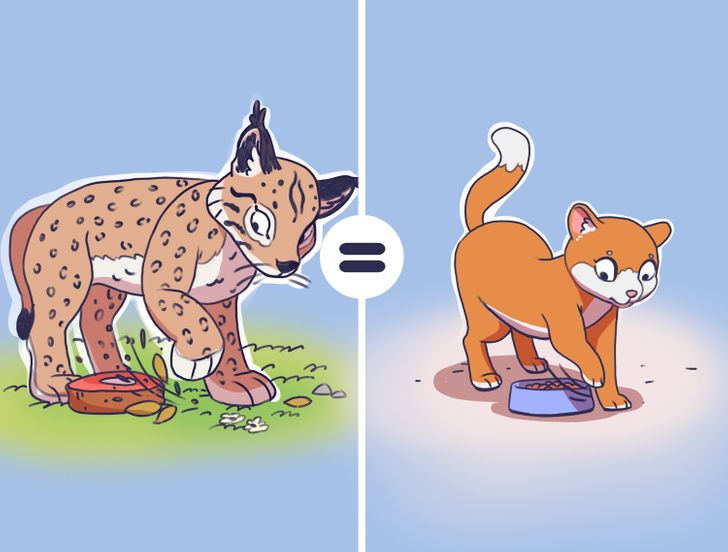
In the wild, feral cats often dig in their food leftovers as a protective measure so that enemies can’t track them down: buried food almost doesn’t smell, nor does it attract scavengers or predators. Nursing females do it to prevent other animals from finding the litter.
Domestic cats demonstrate similar behavior. This is similar to “food caching” that their wild relatives practice in nature. The leopard is known for keeping its prey high in trees to stay away from lions and hyenas. The Canada lynx buries the remains of its food to hide it from other animals.
When you put newspapers under your cat’s bowl, you may notice that your pet scratches and tears them into pieces to be stacked on top of the leftover food. The same can happen with anything nearby that is suitable to cover its food.
Even if a kitten grew up alone, without a mother, it may still bury its food instinctively. This is the type of behavior that an animal does without thinking.
British amateur zoologist John George Wood described similar behavior of his own cat, Pret, in his book, Illustrated Natural History. According to him, the cat would bring a sheet of paper over and put it on top of a saucer after finishing her meal. She would also take handkerchiefs out of Wood’s wife’s pocket with her paw and use them for the same purpose. But there were also quite unusual cases. For example, in the absence of paper and handkerchiefs, Pret sometimes fetched one of her kittens to cover the food. Additionally, she’d use ragged pieces of carpet or a tablecloth from the table, which would then break any dishes that were on it.
The food isn’t tasty.
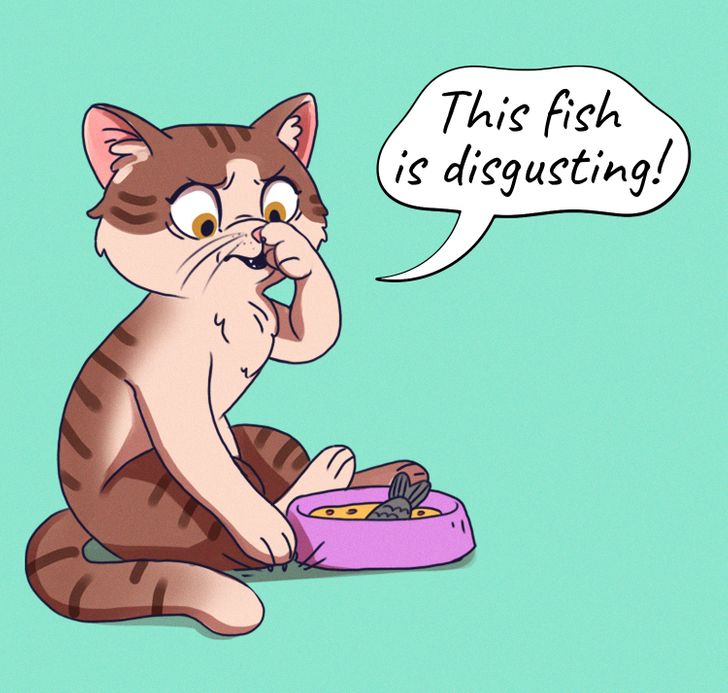
If you change your cat’s diet and it suddenly begins to dig in its lunch, your cat likely didn’t like the food, especially if it has never acted like this before. Perhaps the cat doesn’t like the taste or smell of the food. Also, the cat may feel uncomfortable if you change the position of the bowl.
Any of these things can make the cat start burying the unwanted food. This type of behavior can also be caused by a lack of appetite. Consult a veterinarian if your cat suddenly starts exhibiting this behavior for no apparent reason.
A habit of tidiness
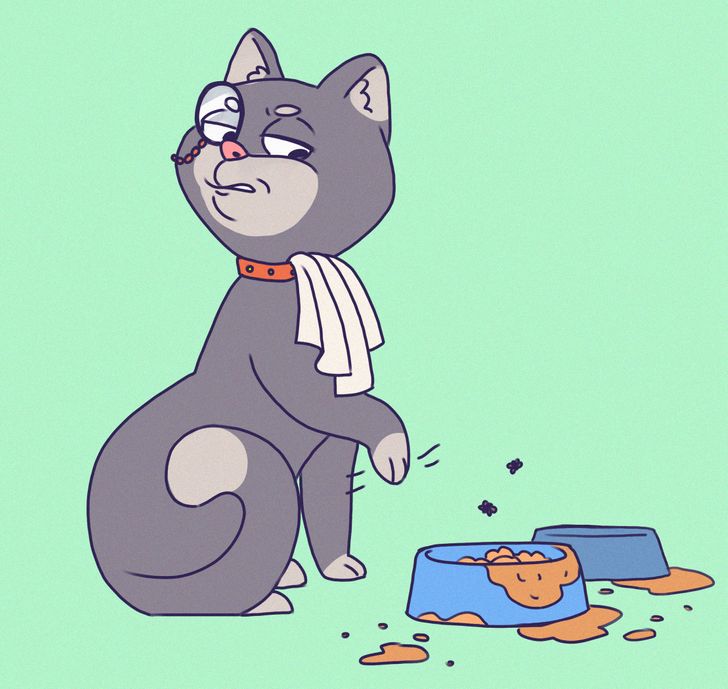
Cats are very scrupulous and neat when it comes to their personal space. For many of them, the place their meals are served is almost sacred. So they’ll almost never eat from a poorly washed bowl. Make sure your pet’s bowl is well washed: this may end its habit of digging in the food.
Scratching around the bowl is similar to the habit of scrubbing the floor after going to the toilet. Such behavior becomes more common when the cat wants to tidy up its eating place, which, in the cat’s opinion, is the best way to cover the remains of food in the bowl.
Too much food
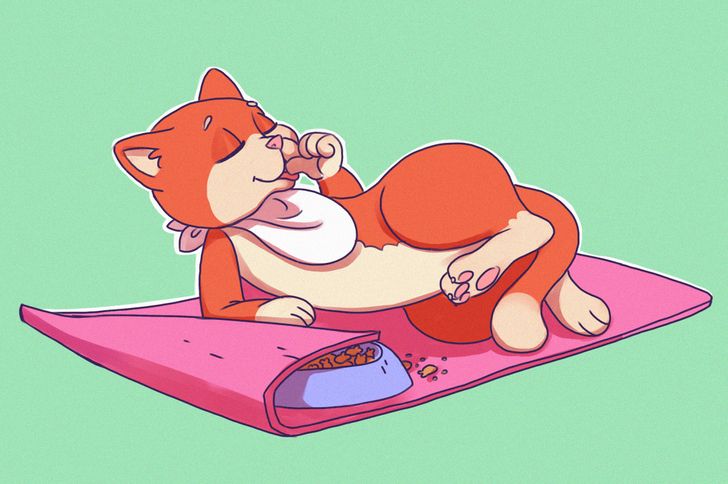
Another potential reason cats try to bury their food is because they are no longer hungry. In this case, burying food leftovers is like hiding toys that you no longer want to play with. If you take them out of sight, it might seem they don’t exist at all.
What you should do
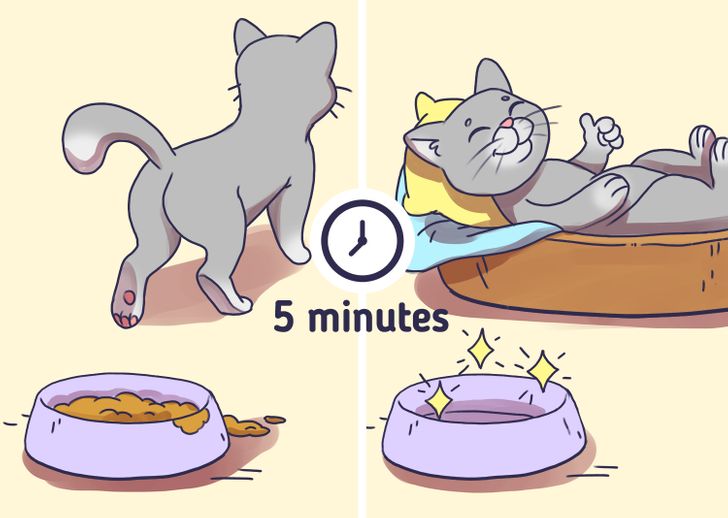
Digging in food is believed to be harmless behavior for cats, given their natural origins. However, if it bothers you or your pet begins to show an excessive tendency to bury its food, follow these tips.
Don’t leave food in the bowl after your pet finishes its meal. Rinse the bowl thoroughly, clean the floor around it, and put a bowl with fresh water next to it.
If you never remove food from the bowl, try putting it in so-called puzzle feeders so that your cat can “hunt” for it.
Consider giving your cat smaller meals. Keep track of its food intake.
Once again, when you notice this behavior in your pet, distract it with a game or any other activity.
If digging in food becomes too frequent and intense and you’re worried about your cat’s condition, consult your veterinarian.